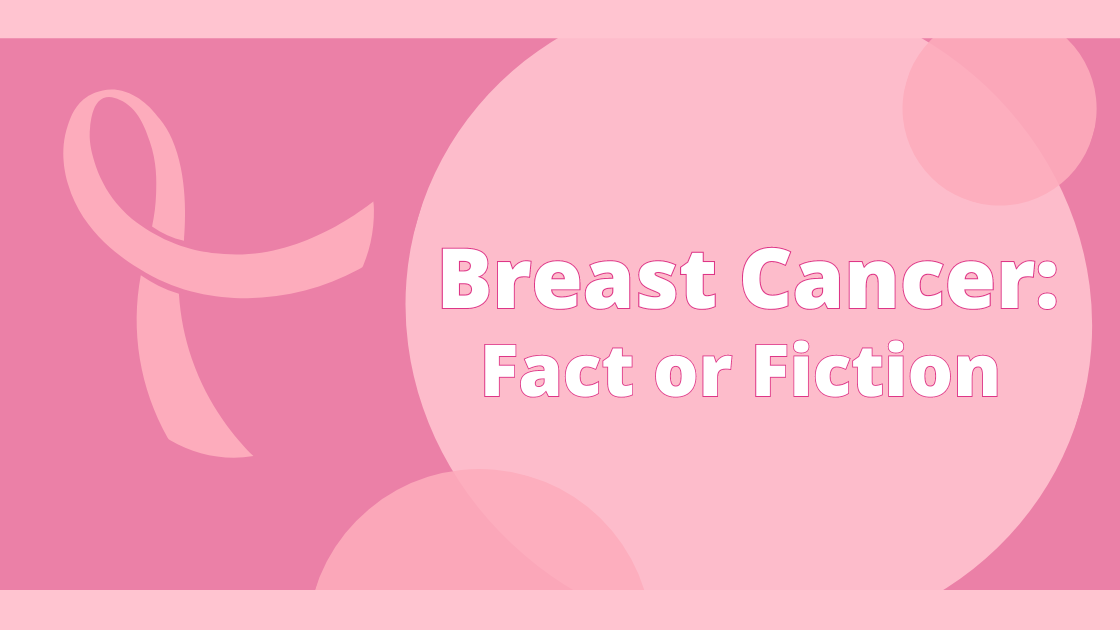October marks Breast Cancer Awareness Month, a time to educate ourselves and others about breast cancer, its impact, and the importance of early detection and support. With so much information available, it’s crucial to distinguish between fact and fiction. Let’s debunk some common myths surrounding breast cancer and reinforce the truths that empower us.
Myth 1: Only Women Get Breast Cancer
Fact: While the majority of breast cancer cases occur in women, men can also develop the disease. In fact, approximately 1 in 833 men will be diagnosed with breast cancer in their lifetime. Awareness campaigns often focus on women, but it’s vital to recognize that men should also be vigilant about breast health.
Myth 2: A Breast Cancer Diagnosis Means Death
Fact: A breast cancer diagnosis can be daunting, but advancements in treatment have significantly improved survival rates. Early detection through regular screenings, such as mammograms, can lead to better outcomes.
Myth 3: Wearing a Bra Increases Your Risk of Breast Cancer
Fact: There is no scientific evidence to support the claim that wearing bras, underwire or otherwise, increases breast cancer risk. This myth likely stems from misunderstandings about how breast tissue and cancer develop. Focus on proven risk factors like age, genetics, and family history instead.
Myth 4: Only Women with a Family History Get Breast Cancer
Fact: While having a family history of breast cancer can increase your risk, most women diagnosed with breast cancer do not have a family history of the disease. Factors such as age, personal health history, and lifestyle choices also play significant roles. Regular screenings are essential for everyone, regardless of family history.
Myth 5: Breast Cancer Always Presents as a Lump
Fact: While lumps are a common sign of breast cancer, they aren’t the only indicator. Other symptoms may include changes in breast shape or size, skin dimpling, discharge from the nipple, or persistent pain. Regular self-exams and awareness of your body can help identify unusual changes early.
The Importance of Awareness and Education
Breast Cancer Awareness Month is not just about dispelling myths; it’s a call to action. Education plays a critical role in early detection and treatment. Here are some ways you can get involved:
- Get Screened: If you’re over 40 or have risk factors, schedule regular mammograms. Talk to your doctor about when to start screenings if you have a family history.
- Educate Yourself and Others: Share factual information with friends and family. Host discussions or attend local events to spread awareness.
- Support Research and Organizations: Contribute to or volunteer with organizations that fund breast cancer research and support patients and survivors.
- Practice Self-Exams: Learn how to perform breast self-exams and make it a monthly routine to check for any unusual changes.
- Advocate for Policies: Support policies that promote breast cancer research and access to healthcare.
As we observe Breast Cancer Awareness Month, let’s commit to separating fact from fiction. By empowering ourselves with accurate information, we can better support those affected by breast cancer, advocate for research, and promote early detection. Together, we can make a difference—because knowledge is power in the fight against breast cancer.
In need of mastectomy bras? Shop our Fall Mastectomy Sale! Receive 20% off all Anita Bras and more!


